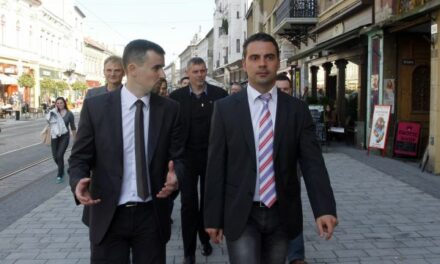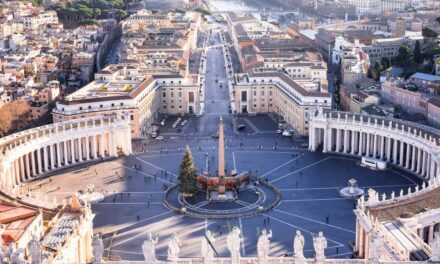A short, far-left testament: this is how Ferenc Gyurcsány wrote the other day about Hungarians and Hungarians abroad, practically burying our compatriots across the border alive in spirit. Written by Attila Demkó and Gábor Névai!
blog post , which the reigning prime minister between 2004 and 2009, caused only superficial and emotional reactions in the public, Although a very important writing, a real political credo; and we could also say, if such a category existed, that
a short, far-left testament about the fate of the Hungarian nation.
It should be taken most seriously.
The man of "no".
It is not our place to judge how tasteful it is for a politician to regularly drag the memory of his own parents, or even their death, into his political expressions: he has the right to do so, and it certainly has an audience. It was once, that's for sure.
Ferenc Gyurcsány's name is closely linked to two successfully planned and executed election campaigns: the 2002 and 2006. The leading motive of the former was the 23 million Romanians, who did not even exist at the time, but rather the collective fear and hatred of not only the Transylvanians, but also the Hungarians who were separated across the border, and before the latter, the referendum on December 5, 2004 proved to be the turning point, when the socialists led by Ferenc Gyurcsány attacked the idea of dual citizenship. The Hungarians across the border, who were set up as rent hunters and preparing for pension fraud, were humiliated in such a way that even the wildest Romanian and Slovak nationalists were shocked.
Today, many people forget, but Gyurcsány could have said yes or even abstained as prime minister. He could have been quiet, he could have listened to the sane voices within his party, because they were there.
This was not the fault of the then MSZP. No. His.
He said no, even instigated it. Of his own volition.
Not for the first time and not for the last time. He prevented the initiative with a particularly active and unpleasant campaign, which was not opposed to Europeanism, in fact. What could be more European than being a citizen of several states? His "gender" follows from 102 years of doctrinal gender given to the entirety of the Hungarian nation. But more on that later.
The strawman argument
In his Trianon-themed blog post, the leader of the opposition commits the "straw puppet" reasoning error. The essence of this is that the person is not disputing the real, original statements of the other person, because then he cannot prove their incorrectness. The only thing he can prove is that the position or statement he has fabricated - which is not the same as the other's - is not true, which, however, does not cast doubt on the original statements and opinions of his debate partner in any way or quality. Ferenc Gyurcsány says that today there are three positions regarding Trianon.
He describes the first as follows: "This is unacceptable, this is a historical misunderstanding, this is more than injustice, this is a lie. It is like death, but the nation cannot die. This has to be reversed somehow. There is no forgiveness, only sinners. At the center of the true national policy must be the moral, political and historical will to restore the mutilated country. Never, never! Anyone who doesn't think so is a traitor - they shout."
It is worth paying attention to the stacking of signs and the caricature-like representation. These are not the lines of a bloody publicist, but the text of the former prime minister,
whose task, in principle, would have been to unite the nation in power (and of course also in opposition) and not divide it.
But let's go further, because according to him, there are also those who believe that "what has been torn apart is irrevocably torn because of historical realities, but eternal mourning must remain at the center of national identity. Trianon is a symbol of the country's disgraced soul. This is why we pray for the loss of Trianon, we sleep and rise with it. If you're Hungarian, you're with us! Anyone who doesn't think so is dishonest - according to them."
Oh no! "Those Hungarians who are with us" is not a Trianon slogan, but a 1956 slogan, but in the author's mind all bad and suspicious people are obviously mixed up: Hungarians across the border, revolutionaries of '56, worshipers. According to him, perhaps these are the more moderate right-wingers in the second group.
After these two groups, it is time to arrive among the real Europeans. This is the third category: "Again, others have digested the indigestible. He was mourned. They don't forget. But they learn and move forward. They are not insensitive, but they have accepted what cannot be changed. They are looking for the future, they no longer mourn the past every day."
Here is the new, socialist-liberal, but definitely progressive type of person.
Apart from the completely distorted and false division/division of Hungarian society as described above, what is the depth of public vulgarity when we say that we should not deal with the past, let alone "mour" it (?). Shouldn't we deal with processing the past, like 1956 or the Holocaust, just because it was a long time ago? What kind of argument is that? Everyone who doesn't forget Trianon and draws attention to its systematic violations of the law just "no, can't go anywhere"? Perhaps he is saying that Trianon can be changed, dissolved within the framework of the European Union, with European solutions?
Trianon is not the past, but the present
Because his starting point is inherently flawed. Trianon is not the past, but the very real present. Because unlike the dead, buried, bereaved parent quoted in the post, the Hungarians living in the territories lost in 1920 are still alive. It is true that it is diminished, weakened, attacked even today by the nationalisms of neighboring countries, hiding from conscription, forced to fight other peoples' wars, but it is alive.
When a statue can be brutally cut down and thrown on the ground, when a Hungarian taking his pregnant wife to the hospital can be taken immediately to the front, when at a chestnut festival you can't write "kürtős kálács" in Hungarian because a mayor in the European Union comes and covers it up , then what kind of transcendence of the past is Ferenc Gyurcsány talking about?
When a national community of millions cannot use its own symbols on its national holiday, where is the former prime minister's sense of justice, solidarity, or at least his interest?
Ever since he has been in politics, a prominent element of his activities has been the determined, thorough and uncompromising fight against the Hungarians forced beyond our current borders. There are no limits or inhibitions.
"The death of a part of the Hungarian nation," he writes about them.
This spiritual burial alive, there is no spiritual act in the world more brutal than this.
On the political side, for a hundred years, they have always been hellishly offended when others do not consider those who call Transylvanian and Upland Hungarians Romanians, Slovaks, and foreigners to be part of the nation. But those whom he classifies as dead, why shouldn't they think of him as the dead part of the nation in the political sense? Don't get so upset about it then.
Let's be honest, if this is him: we have more to do with a Subcarpathian Hungarian, who is actually "Subcarpathian" only because of a strategic railway line, and now his life is ruined, than with Ferenc Gyurcsány, who says no to them in all systems, at all times. We have more to do with the Székely village community, which even accepted financial disadvantages for its language, Hungarianness, and symbols, than we do with Ferenc Gyurcsány, who not only does not know the culture of all Hungarians, but also consciously carried out the mutilation, more than any oppressive neighboring nationalism could expect.
Ferenc Gyurcsány happily, one might say cheerfully, forges the many smaller and bigger spiritual Trianons
within and outside borders. There is not and never will be a common set with him. Because the basis of the common set is that we don't cut off a huge part of the nation along some kind of ideology, or just because we can't hope for political benefit from them.
In the shadow of old sins
Ferenc Gyurcsány - like many of his predecessors and ideologues for more than a century - thinks that good relations with the neighboring peoples can be guaranteed by humbling, self-flagellation, and walking below the threshold. You are wrong, just as Oszkár Jászi was wrong, whose attractive theories were laughed at by the Romanians in Arad in 1918, as soon as they came to a position of power. Even the more developed Czechs did not want Eastern Switzerland. Nobody wanted it, as soon as it got inside the area, it became oppressive. He is wrong, just as Mihály Károlyi was wrong, who believed that the West would bring a decent peace. He is wrong, as all left-wing leaders were wrong after 1918. Rákosi, Kádár, Grósz, Horn and the others were wrong, who believed that by squaring one's own crimes and surrendering, one could solve the problems that were precisely caused by the aggression, let's say, conquest, committed against the Hungarian people in 1918-1920.
These problems can only be solved if our neighbors realize that they are conquerors in the Hungarian-majority areas,
and end the aggression that goes on every day against the Hungarian language, culture and future,
sometimes openly and rudely, sometimes more covertly, but continuously. There is a solution in today's Europe, there is a European solution: the autonomies, the systems of national equality: South Tyrol, Belgium, Finland are the best examples of this.
Old sins have a long shadow - and their present. Ferenc Gyurcsány is self-consciously and proudly a prisoner of the more than a hundred-year-old, convulsive, inhibited state of cool relations with the nation, which closes the way to the majority, and not only between Gyurcsány and his followers, as well as Hungarians who have split beyond our borders. This creates an unbridgeable chasm even within our current borders and further deepens the cold civil war that has been going on since 1990.
The message of the former prime minister's letter is completely clear: his ideological circle, as long as he is the unquestionable leader, does not consider the annexed Hungarian communities to be part of the Hungarian nation.
They no longer exist for him, they are dead. Two million Hungarians are "dead".
They can only receive ostracism, but at least resignation and rejection from Ferenc Gyurcsány, whose blog post is a really clear speech.
Of course, Ferenc Gyurcsány is not the opposition or left-progressive thought, no matter how much he wants to be. He's just a gross anomaly. Leftism has nothing to do with this, it is an extremism that many have already said no to. Many things can and should be discussed in Hungary. About the future of Europe, the rights of sexual minorities, the fight against climate change, and in general about what makes the country more livable.
On the other hand, it cannot be disputed that everyone who declares themselves Hungarian is a part of the Hungarian nation, regardless of national borders. It cannot be disputed, because it is a fact that the living part of Hungarian existence is Nagyvárad, Cluj, Beregszász, Szabadka, Dunaszerdahely and many other cities, the vast, beautiful Székely landscape, or the world of Csallóköz.
Even if it is difficult, there is a future for Hungarians even beyond our current borders.
It has a future, of course it also depends on us. After 2002, 2004 and 2006, Gyurcsány again placed himself outside the basic consensus. Along with it, something has no future in Hungary: left-wing progressive thinking.
Featured image: MTI/Tamás Kovács












